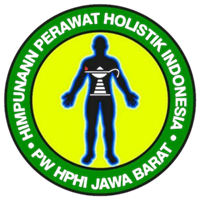Factors Influencing the Success of Toilet Training in Preschool-Aged Children
DOI:
https://doi.org/10.56359/gj.v5i1.343Keywords:
children, growth, preschool, toilet trainingAbstract
Introduction: Toilet training is defined as the ability to initiate and complete urination and defecation independently. This is an important marker in the normal development of children, as it is a challenging process not only for children but also for their families.
Objective: The aim of this research is to find out what factors influence the success of toilet training among preschool children in the Karanganyar Village area.
Methods: This research method is quantitative. The type of research used is correlational analytics with a cross-sectional approach. The population used in this research were 56 preschool-aged children in Karanganyar Village, Karangsiswa Kindergarten, Mahardika Kindergarten, and Terate PAUD, using total sampling techniques.
Result: The results of this study show that, based on the chi square test, knowledge and work have a p value of <0.05, while education has a p value of >0.05.
Conclusion: The conclusion is that there is an influence of mother's knowledge and work on the success of toilet training and there is no influence of education on the success of toilet training.
Downloads
References
Anwar, C., Rahmi, N., Safitri, F., & Fikransyah, R. (2023). Hubungan pola asuh dan pengetahuan ibu dengan keberhasilan toilet training pada anak PAUD KB Adil Ibara Kabupaten Aceh Jaya. Journal of Healthcare Technology and Medicine, 9(1), 92–100. https://doi.org/10.33143/JHTM.V9I1.2789
Andriyani, S., Ibrahim, K., Wulandari, S., & Cimahi. (n.d.). Analisis faktor-faktor yang berhubungan dengan toilet training pada anak prasekolah. Jurnal Ilmiah Keperawatan, 2, 146–153.
Aprillina Sartika. (2018). Faktor-faktor yang berhubungan dengan keberhasilan toilet training pada batasan usia 3-5 tahun di Dusun II Desa Karang Rahayu Kecamatan Karang Bahagia Kabupaten Bekasi. Jurnal Ilmiah Keperawatan.
Hamdanesti, R., Rahmi, A., Tinggi, S., Kesehatan, I., & Padang, A. (2023). Analisis pola asuh orang tua dengan keberhasilan toilet training pada anak usia toddler (1-3 tahun) di wilayah kerja Puskesmas Andalas tahun 2023. Jurnal Ilmu Kesehatan Mandira Cendikia, 2(10), 33–38. https://journal.mandiracendikia.com/index.php/JIK-MC/article/view/585
Mansur, A. R. (2019). Tumbuh kembang anak usia prasekolah. In Andalas University Press (Vol. 1, Issue 1).
Pusparini, W., & Arifah, S. (2009). Hubungan pengetahuan ibu tentang toilet training dengan perilaku ibu dalam melatih toilet training. Jurnal Keperawatan, 105–111.
Rahayu, S. F. (2022). Relationship pattern of working parents to the independence of toilet training preschool children (Literature study). Healthy-Mu Journal, 4(2), 82–87.
Rosdianty Marvia, D. (2021). Hubungan pola asuh orang tua dengan keberhasilan toilet training pada anak usia prasekolah di Desa Kendal Jaya tahun 2021. Retrieved from http://e-repository.stikesmedistra-indonesia.ac.id/xmlui/handle/123456789/111
Ratnaningsih, T. (2020). Penggunaan diapers selama masa toilet training dengan kejadian enuresis pada anak prasekolah.
Downloads
Published
How to Cite
Issue
Section
License
Copyright (c) 2024 Metty Nurherliyany, Ima Sukmawati, Jajuk Kusunawaty, Cindy Nuraplliani

This work is licensed under a Creative Commons Attribution 4.0 International License.















